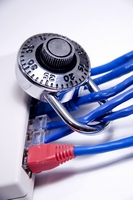The 21st century truly deserves to be known as the digital age; these days most of us use electronic devices for communication, and a large proportion of people also conduct a variety of financial transactions online. It’s easy to dismiss the risks where Internet security is concerned, but should we really be as worried as the doom-mongers claim?
The truth is that the rise of wireless Internet, and the proliferation of hotspots making it easy to browse the Internet on the move, has led to a serious risk increase, and we all need to take more care.
It’s not just identity theft that we need to be concerned about; anyone who banks online or makes purchases and payments online is open to hacking, yet there is an answer. The rise in popularity of Virtual Private Networks (VPN) is a clear indication of the seriousness of the problem, yet still people take unnecessary risks when logging on. So, why invest in a VPN, and what benefits will it bring?
The dangers of public Wi-Fi hotspots
It is essential to stress how unsafe Wi-Fi hotspots can be: by using one in a public place, and there are many, you are opening your system to unscrupulous people who have the know-how to snoop on your data and hijack your information. This is where a VPN comes into its own, for it effectively shields your identity; a VPN is a connection to a server – a secure server – by your computer, and you can connect to the Internet using that server. The benefits of a VPN are many, and go further than simply keeping out the snoopers:
– A VPN hides your IP address
– You can access information bypassing any censorship
– A VPN may bypass firewalls
– Prevent identity theft with a VPN
The above applies to commercial users as much as personal users, and many corporations are now using a VPN for staff who need to connect to the office from outside. As the VPN will encrypt all data this is particularly useful where potentially sensitive data is being transmitted between users.
How VPNs have developed
The VPN is not a new idea as there have been packages available for around twenty years; the rapid rate of development in terms of mobile devices means that even the most portable of smartphones should be using a VPN if it is used regularly for communication, banking or shopping, as these powerful devices are also open to hacking. The use of email – one of the most easily hacked forms of data – on mobile devices makes smartphones particularly vulnerable, and the tablet computer is also in need of added security.
Mobile banking, another increasingly popular area of use, is also an essential area where a VPN is necessary, as is any financial transaction that takes place online: the bottom line is this – if you are going to carry out transactions or send valuable information using a public Wi-Fi hotspot you simply must use a VPN. Not to do so is, according to the experts, an invitation to those people who have an interest in, and the ability to, hijacking your information.
The increasing need for secure communication
The fact remains that we have a tendency to be somewhat lax when it comes to Internet security, whether in the home, at the office or in public. The ‘it won’t happen to me’ attitude is one that is prevalent throughout society, but it is a dangerous approach to take. Each of us, no matter how many steps we take to protect our data, is susceptible to clever and immoral persons who have an interest in stealing our data and other information. Identity theft is a very real problem in the digital age, and many large organizations have found their computer networks have been compromised at some point.
 There is a belief, also, that a VPN is some sort of shady, underhand system used for criminal means: this is brought about by the fact many promise to circumnavigate censorship and firewalls in regions where they may be in place, but this is a major benefit in both corporate and personal terms. Furthermore, many websites and – in some cases – Internet Service Providers – log your movements on line; a VPN protects against this as it shields your IP address, the tag that tells those who wish to know who – and where – you are, and what you have viewed online.
There is a belief, also, that a VPN is some sort of shady, underhand system used for criminal means: this is brought about by the fact many promise to circumnavigate censorship and firewalls in regions where they may be in place, but this is a major benefit in both corporate and personal terms. Furthermore, many websites and – in some cases – Internet Service Providers – log your movements on line; a VPN protects against this as it shields your IP address, the tag that tells those who wish to know who – and where – you are, and what you have viewed online.
The use of a VPN in a corporate environment allows for representatives and executives out of the office to access the company computer network – securely and safely – as if they were in the office, wherever they may be. The crux of the matter is this: if you want the most secure and protected Internet access it is wrong to assume your anti-virus software will be sufficient – it is, after all, there to protect you against viruses, not against identity theft and hacking. Invest in a VPN – the relatively minor cost will be a worthwhile investment, no matter what you use the Internet for. There are even free VPN solutions out there…